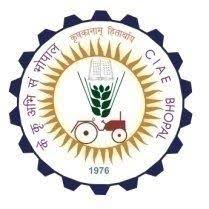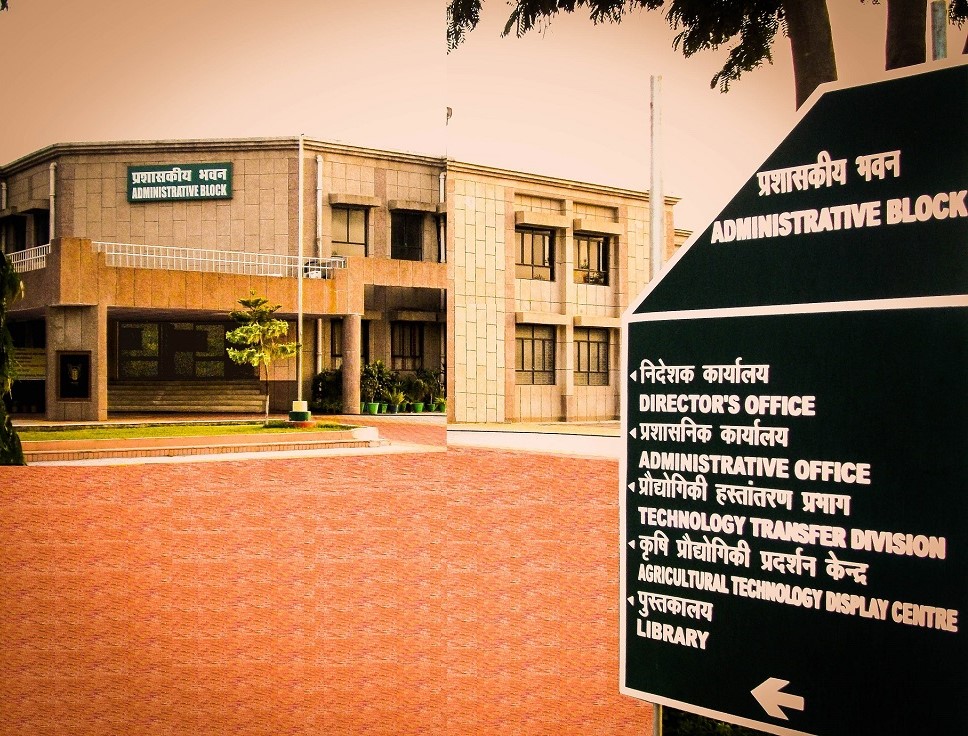
भाकृअनुप - केन्द्रीय कृषि अभियांत्रिकी संस्थान, भोपाल
ICAR - Central Institute of Agricultural Engineering, Bhopal

History

About Institute
The necessity for the establishment of a National Institute of Agricultural Engineering was voiced at the Study Group meeting of the main Working Group on Agricultural Research, Education and Manpower constituted under the chairmanship of Dr. JS Patel, the erstwhile president of the Indian Society of Agricultural Engineers in September 1972. The Group suggested the ICAR for the appointment of a Task Force Committee for the formulation of modalities for establishment of the Institute. The Planning Commission approved the project in 1973 for the establishment of the National Institute of Agricultural Engineering (NIAE) and a team under the chairmanship of Prof. AC Pandya was constituted by ICAR vide letter No. 26-4/73, PP&E dated 1973 to finalize the selection of a suitable site for the location of the Institute.
Originally, the proposal for the establishment of the National Institute of Agricultural Engineering was suggested for an Institute with facilities to address issues in the field of Farm Machinery and Power, Land Water Resources Development, Agricultural Product Processing, Agriculture Structure and Rural Planning. However, the Task Force Committee decided to limit the activities of the NIAE to the fields of mechanization and post harvest operations due to financial and other constraints. It was realized that a few such Institutes of national level have already been established and they have made significant contributions in the field of land and water resources development and therefore, research facilities for such activities were not to be duplicated. Revised proposal was submitted in 1974 to the Planning Commission for approval with 6 departments namely Crop Production Engineering, Harvesting and Threshing, Post-Harvest, Farm Power, Mechanical Engineering and Instrumentation. This proposal was further revised to limit to only 4 departments i.e. Crop Production Engineering, Post-Harvest Engineering, Electro Mechanical Engineering and Farm Power. The name of the Institute was also changed from National Institute Agricultural Engineering to Central Institute Agricultural Engineering (CIAE) on suggestion of Planning Commission. This proposal was discussed in the Planning Commission in 1975 and was approved with the suggestion to include the Department of Farm Power under Electro Mechanical Engineering Division.
The Ministry of Agriculture and Irrigation (Department of Agricultural Research and Education) thus conveyed the sanction of the Government India for the establishment of the CIAE at Nabi-bagh at a cost not exceeding Rs. 10 million during the V Five Year Plan period (1974-79) through ICAR letter No. 26-3/75-AE dated 17th November 1975. The Institute was formally started at Nabibagh with effect from 15th February 1976. The headquarters of the AICRP on Harvest and Post Harvest Technology Scheme was transferred from IARI, New Delhi to CIAE Bhopal and Mr. TH Nimal PC, PHT Scheme was designated as Officer Incharge of the CIAE Bhopal. Prof. AC Pandya took over charge as the first Director of the CIAE on May 2, 1977.
The headquarter of the scheme on research and development of Farm Implements and Machinery and Production of Prototypes and their Evaluation under different Agro-climatic Conditions was also transferred from IARI, New Delhi to CIAE, Bhopal in September 1977. The CIAE has a cadre strength of 349 of which, 89 are highly trained scientists/engineers and 144 are technical staff. The scientific (engineers and bio-scientists) and skilled technicians represent the disciplines of agricultural engineering, mechanical engineering, bio-chemistry, micro-biology, food science, home science, electronics and instrumentation, computer application, statistics, economics and agri-business. It has facilities for undertaking research and development in the area of agricultural mechanization, irrigation, plant protection, ergonomics, ergonomics and safety in agriculture, post harvest processing, soybean processing and utilization, integrated energy management utilizing mechanical and renewable energy sources.
The activities of the institute are organized through five divisions (Agricultural Mechanization, Agro Produce Processing, Agricultural Energy and Power, Irrigation & Drainage Engineering and Technology Transfer); four All Indian Coordinated Research Projects (Farm Implements & Machinery, Energy in Agriculture & Agro Industries, Utilization of Animal Energy, and Ergonomics & Safety in Agriculture); two Consortia Research Platforms (Farm Mechanization and Precision Farming, and Energy from Agriculture), and a Centre of Excellence on Soybean Processing and Utilization. The cooperating centres of four All India Coordinated Research Projects (AICRPs) located in SAUs, CAUs, IIT and NGOs address the crops and region specific technological issues throughout the country. The Regional Centre at Coimbatore addresses the engineering intervention needs of southern states of the country. Krishi Vigyan Kendra (KVK), Bhopal, functioning at institute campus, serves to demonstrate and popularize engineering technologies for large scale adoption by the farmers in Bhopal district. Institute has an outreach centre of ICAR-IARI, New Delhi to address the need of higher education in the field of agricultural engineering.
The Institute has 93.85 ha land for research, office and residential purpose. The Research Workshop provides the facilities for fabrication of research prototypes and the Prototype Production Centre multiply research prototypes for multi-locational trials. The Computer Aided Design cell helps to design and model research prototypes before their fabrication. The Agricultural Knowledge Management Unit assists in research activities related to application of IoT and AI in agriculture and database creation and instrumentation cell supports instrumentation in various research projects. ICAR-CIAE, Bhopal main campus and its Regional Centre, Coimbatore are recognized by DAC&FW, GOI for testing of farm machinery and post-harvest machinery.






